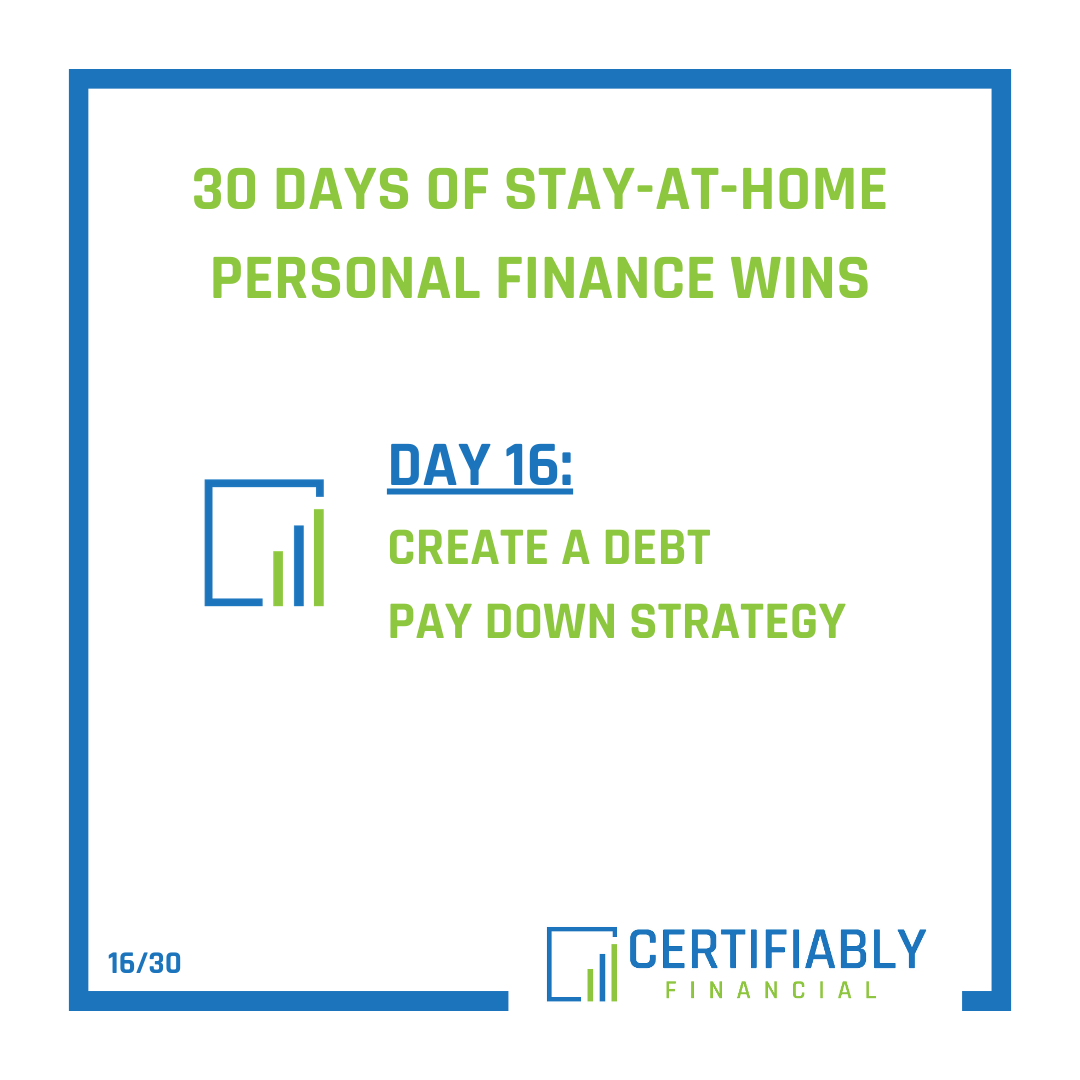What if you were able to come out of this time of social distancing and economic crisis with a stronger and healthier financial life? What if you looked at this as an opportunity to take a little bit of your extra time each day to work on your finances?
Since it takes me about 35 minutes to drive to work in the morning and 45 minutes on the way back home, I have an extra 1 hour and 20 minutes of my day that I don’t have to drive while I’m working from home that I can use to accomplish something. This doesn’t even take into consideration all of the networking and social events that would usually take up some of my time throughout the week.
Obviously, your situation is different than mine (and probably a whole lot different if you have kids at home who would otherwise be in daycare), but I’m guessing that we all have at least a little extra time right now that we can dedicate to our personal finances.
It looks like we’re going to continue to practice our social distancing skills at least through April, and now is a great time to work on creating a better financial situation, so I’m giving you 30 days of stay-at-home personal finance wins throughout April.
Unfortunately, I understand that there are many who have (and who will) lose their jobs during this time of uncertainty and objectively will not come out on the other side of this with a stronger financial situation. Hopefully, many of these personal finance wins can help to lessen the blow and make things easier on them. On the other hand, I think that many of these wins are still relevant to those who are fortunate enough to be in a position to not have to worry about their job and their finances to help them build a healthier financial life.
Day 16: Create A Debt Pay Down Strategy
Debt is one of those things that people can get caught up in but continue to ignore because ignoring it is easier than facing it.
Take some time to get organized and make a comprehensive list of your debts. Be sure to include balances, interest rates, minimum payments, and expected payoff dates. Here’s are some of the most common debts that you may have and that you should find the above information on:
- Credit card
- Student loan
- Mortgage
- Auto loan
First of all, you should determine if you’re in a position to start attacking your debt. Do you have an emergency fund in place? (At least a small one). What would happen to you if you had to pay for an emergency without one? Would you go into more debt? Are you at risk of losing your job? Does it make sense to pay down your debt more quickly or would you be better off doing something else with that cash? Individual considerations need to be made before dumping all of your cash into debt payments.
If you are in a position that you’re ready to create a debt pay down strategy, then after you’ve organized the information listed above regarding your debts you should consider the possible strategies you could use.
I’m an optimizer, so I like the debt avalanche method where the debt with the highest interest rate is paid down first. However, many people prefer to use the debt snowball method and pay off the smallest balance first because it allows them to get more frequent wins along the way as since they’re able to knock out loans more frequently. Another strategy could be to simply pay the minimum payments if it makes sense given the interest rate and the type of debt that you have.
Here’s a more in-depth article to help you think through your strategy: Paying Down Debt in 2020
No matter what you choose, go with a strategy that you can financially sustain for the long haul and that you’ll be able to stick to emotionally.
30 Days Of Stay-At-Home Personal Finance Wins
- Day 1: Understand The CARES Act
- Day 2: File for Unemployment or Short-Time Compensation
- Day 3: Request Forbearance
- Day 4: File Your Tax Return (Maybe)
- Day 5: Commit to Yourself
- Day 6: Practice Financial Distancing
- Day 7: Don’t Panic
- Day 8: Create An Online Shopping Strategy
- Day 9: Find & Store Your Login Information
- Day 10: Review Your Spending
- Day 11: Free Up Cash Flow
- Day 12: Automate Bill Payments
- Day 13: Plan To Increase Your Emergency Fund
- Day 14: Update Your Beneficiaries
- Day 15: Plan for Big Expenses

